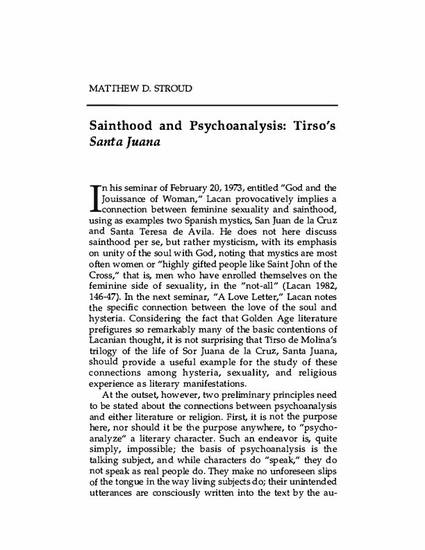
In his seminar of February 20,1973, entitled "God and the Jouissance of Woman," Lacan provocatively implies a connection between feminine sexuality and sainthood, using as examples two Spanish mystics, San Juan de la Cruz and Santa Teresa de Avila. He does not here discuss sainthood per se, but rather mysticism, with its emphasis on unity of the soul with God, noting that mystics are most often women or "highly gifted people like Saint John of the Cross," that is, men who have enrolled themselves on the feminine side of sexuality, in the "not-all" (Lacan 1982, 146-47). In the next seminar, "A Love Letter," Lacan notes the specific connection between the love of the soul and hysteria. Considering the fact that Golden Age literature prefigures so remarkably many of the basic contentions of Lacanian thought, it is not surprising that Tirso de Molina's trilogy of the life of Sor Juana de la Cruz, Santa Juana, should provide a useful example for the study of these connections among hysteria, sexuality, and religious experience as literary manifestations.
